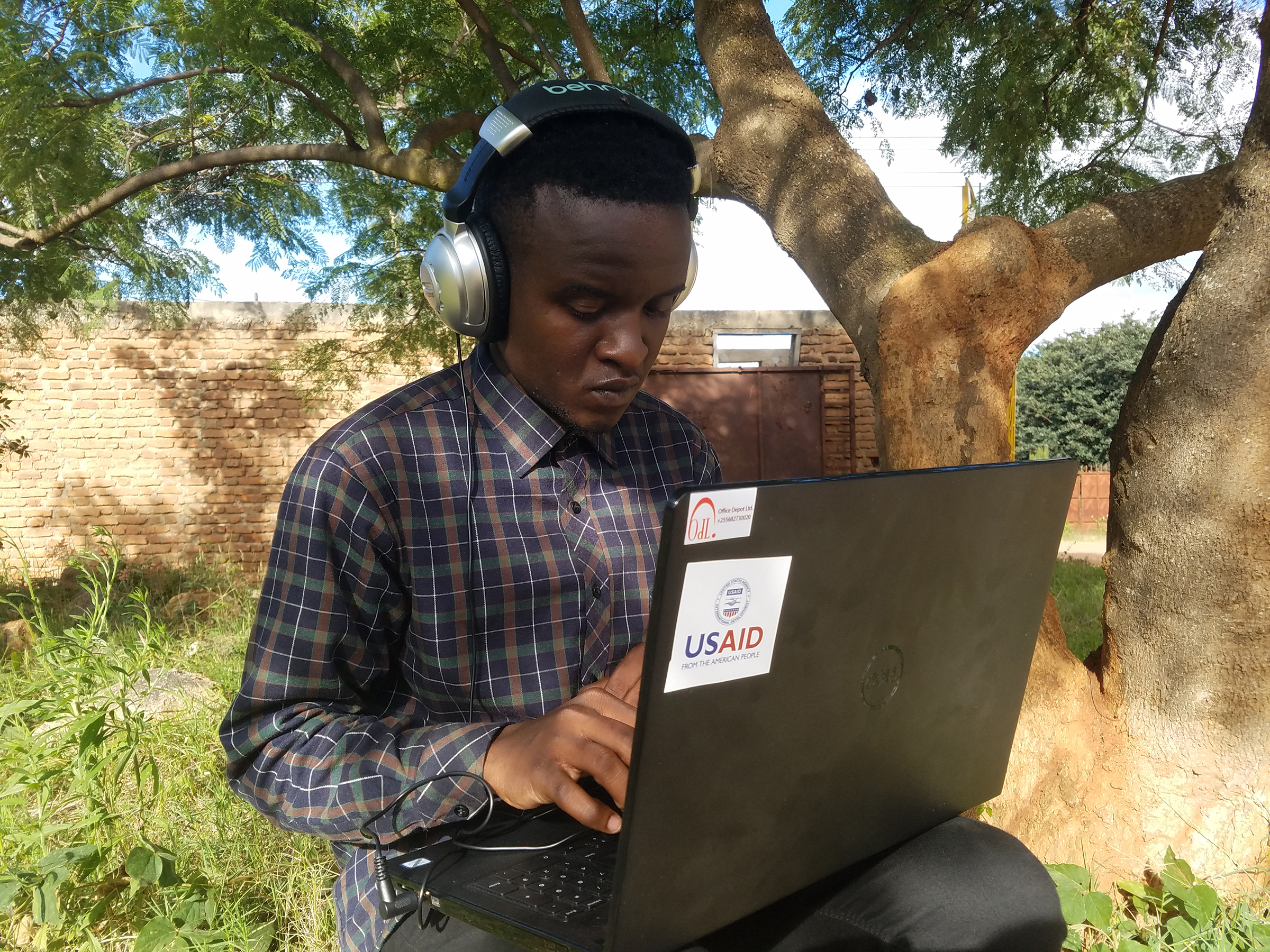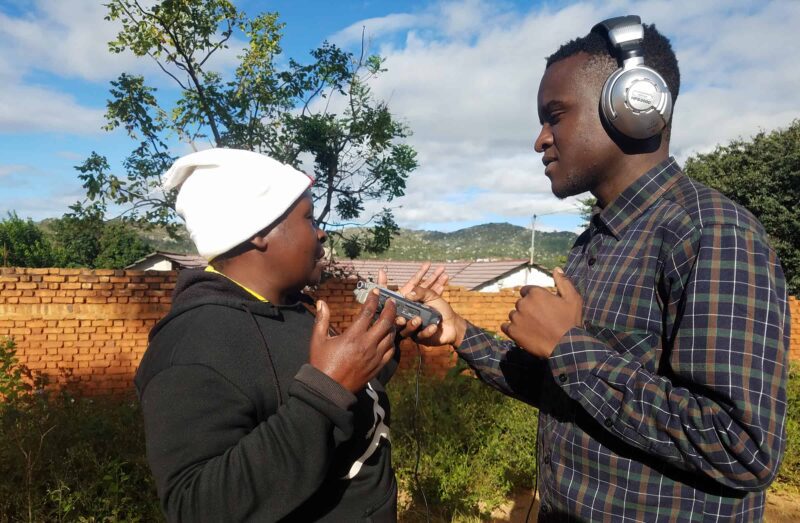In this highly competitive era of technology, radio stations must be well equipped to be able to provide timely and accurate information and become a platform for rural communities to communicate with authorities.
Internews, through its USAID-funded Boresha Habari project, recently donated production equipment worth Tsh 200 million ($90,000) to 19 community radio stations in Tanzania in an effort to improve the quality of their programs.
One of the beneficiaries is Iringa-based Country FM, whose station manager Chiku Mbilinyi describes the change this has brought to the station as a “huge leap to the top.”
“Before we had only three old computers that our team of more than eight journalists shared. It was a real struggle. Sometimes the news editor would ask to use my computer to enable us to produce programs on time. We could not afford new computers and that gave me sleepless nights,” says Mbilinyi.

Another challenge was the lack of tape recorders. According to Mweha Msemo who heads the news department, this resulted in all Iringa-based news stories having poor quality audio since most of the journalists recorded their interviews using their phones.
“Sub-standard audio pieces in our news bulletins and programs embarrassed us before our community and competitors. But more embarrassing sometimes was airing our news bulletins with no audio inserts at all,” recalls Msemo.
The station has also partially solved another irritating problem; that of going off-air for some minutes whenever there was a power outage while the generator was manually switched on.
“We now have a UPS (uninterruptible power supply) from Internews and no longer have to disappoint our listeners every now and then,” says Devotha Romanus, a radio presenter with Country FM. She adds, “When the station goes off-air for even a minute, people tune to other stations and may never return on that particular day.”
The equipment has restored the professional pride of journalists. “Through Boresha Habari project our journalists have become more efficient,” says Lebi Gabriel, the CEO of Rungwe Small Tea Growers Association (RSTGA) who owns Chai FM Radio.
Bahat Obel, who is the station manager at Chai FM, says she plans to introduce on-the-hour news briefs, thanks to increased quality content collection capacity. “Every journalist I send to the field has a recorder.”
Jacob Mwenga, the manager of ICE FM in Njombe region is proud that journalists no longer have to wait for their turn to use the computer. “We have received desktop computers, a laptop and voice recorders for preparing and processing content. In the past, we would wait for one journalist to return from the field so that another one could use a voice recorder. That is no longer the case.”
Miss Blighter Nyoni, the news editor of Ice FM says the journalists go to the field with complete equipment. “They can even process and send their stories to the newsroom while still in the field.”
Clif Mbelwa, a journalist with Ice FM says sources take him more seriously. “I now perform my tasks more easily and accurately. I have regained the respect I lost within our community.”
Social media manager at Upland FM, Philemon Sanga says the new camera received through the Boresha Habari project has improved the availability of photos and videos in their social media pages, gaining the station more followers.
“Now our audience can also view our well-organized content on social media instead of just listening to our news bulletins and programs on the radio. This is a huge step for us. I’m also thinking about applying online marketing strategies to increase our station’s income,” says Sanga.
By Mahondo Temigunga, Internews Trainer
(Banner photo: Radio Country FM journalist, Joseph Kipangula, conducts an interview with Salome Chaula, an Iringa municipal resident during an Internews-led training on content improvement held at the station. Credit Mahondo Temigunga/Internews)
